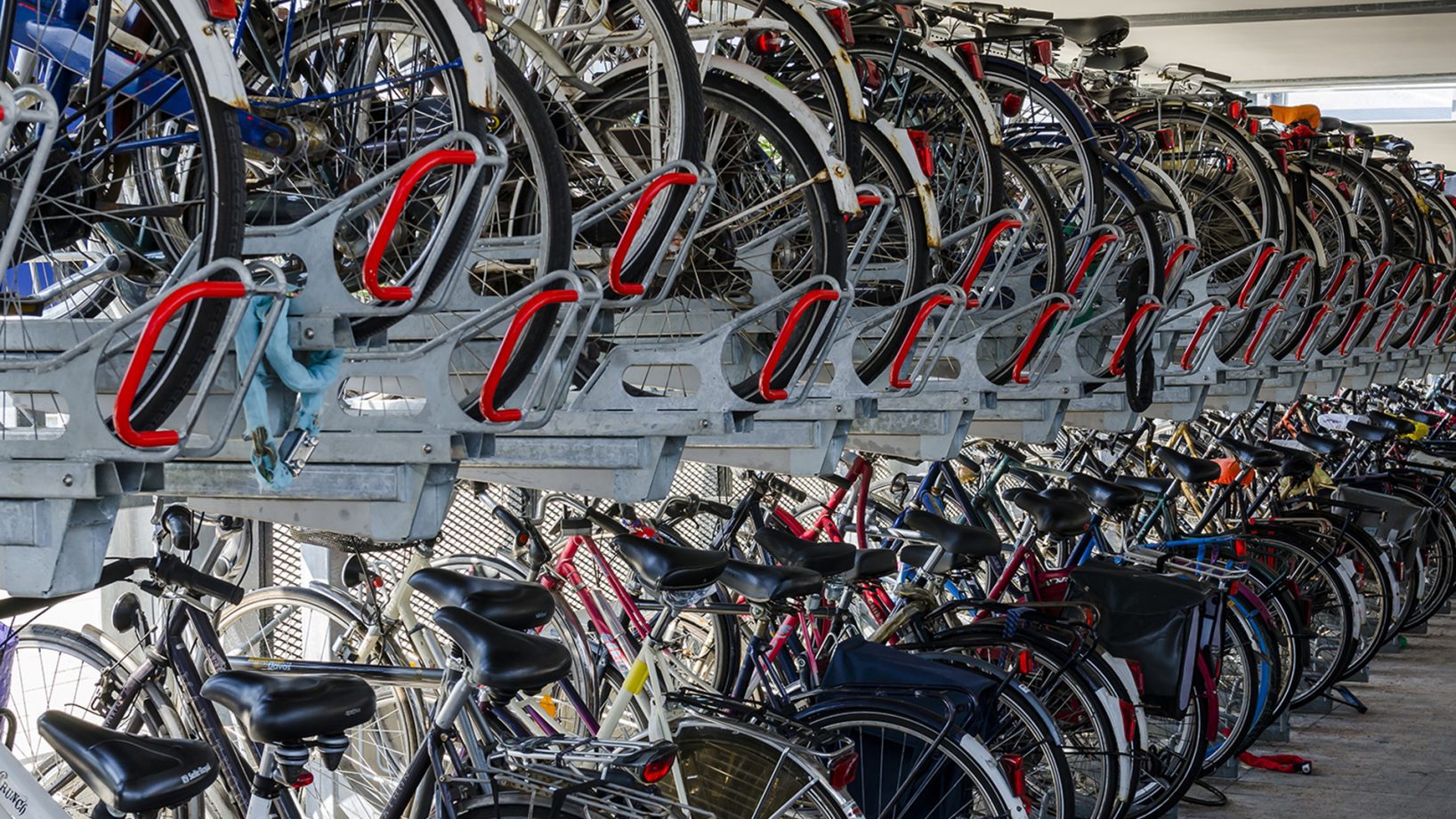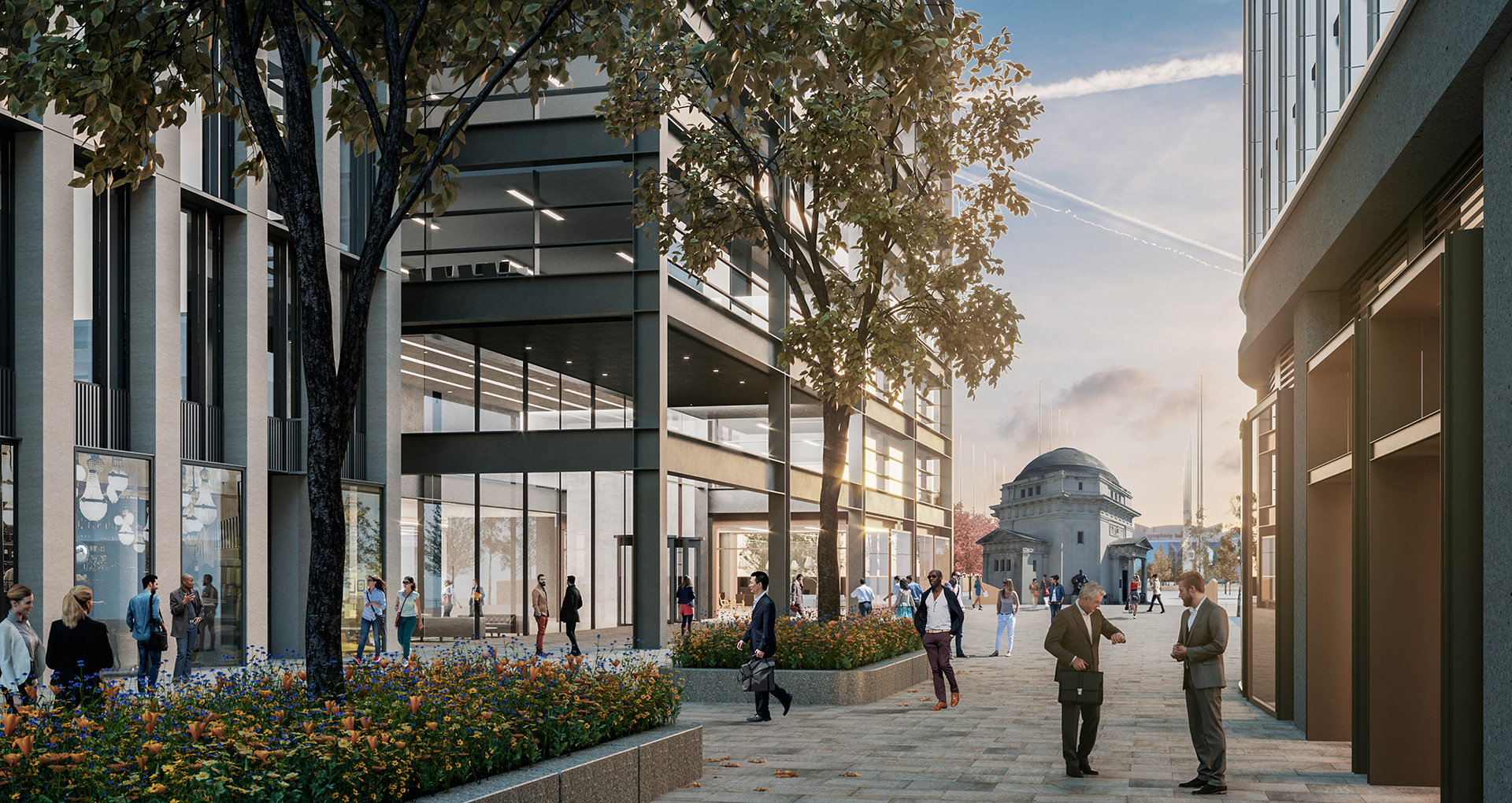Positive response to Paradise cycle hub

Cyclists across the city have responded enthusiastically to a consultation on proposals to create Birmingham’s first large scale cycle hub at Paradise Birmingham.
The public consultation was promoted on social media and in the local press during April and more than 200 cyclists took part. It was run to help the Paradise development team make plans for a cycle hub at One Centenary Way, the first building to be built as part of the second phase of Paradise Birmingham. It will have space for 440 bikes.
One Centenary Way received planning permission from Birmingham City Council in March 2018. The thirteen-storey 280,000 sq ft One Centenary Way building will overlook the transformed Centenary Square and provide a striking visual gateway to the Paradise development with its exposed structural steel façade.
The Cycle Hub will sit in the basement of the building and be open to any cyclists who travel into the city centre and have a need to safely store their bike.

The first stage of designing the hub is all about asking the city’s cycling community what they would like to see at such a facility. Suggestions include bike stands, lockers, showers, drying facilities, security measures organised events and workshops, cycle hire and maintenance facilities.
The Paradise Birmingham development team has already begun the process of analysing the data contained within the 200 surveys. The information will be used to inform how the next phase of development progresses, including looking at options around an operator, specific facilities and membership format. The aim for Paradise is to support cycling and create a facility of real benefit to the local community that encourages more people to cycle.
Nearly 40% of respondents to the cycle hub survey said they already used cycle facilities like those at New Street station.
Just under 60% of respondents said their bike journeys were for work with the rest for leisure, education or pleasure.
The majority of journeys into the city centre (45%) were between 3-5 miles, although 14% of respondents did cycle more than ten miles into the city centre.
Just over a quarter (26%) cycled less than 3 miles in order to reach the city centre.
Nearly two thirds of respondents (63%) said they would be more likely to cycle, or cycle more frequently, if a cycle hub existed with the majority anticipating using the facility up to 3-5 times per week.
Rob Groves, regional director of Argent, Development Managers for Paradise Birmingham, said:
The result of a month-long consultation directly with cyclists, the survey and its results will feed in to how we plan and develop this flagship facility for the benefit of all cyclists across the city.
Our next job is to collate the data from all 200 respondents to the survey and begin the process of prioritising the many ideas that have been suggested as well as trying to find solutions to some of the issues raised.
“We understand that access to the hub is one of the key issues identified and we want to stress that the area around Paradise will be a very different place by 2022 with integrated metro and bus lanes on the local road network.
“We are fully aware of the challenges local cyclists face every day, especially around safety, and this is why we want to create a facility that meets the needs of the cyclists of today and tomorrow.
“We will continue to work closely with Birmingham City Council, TfWM and the various cycling groups to improve facilities not just at Paradise but across the city.”